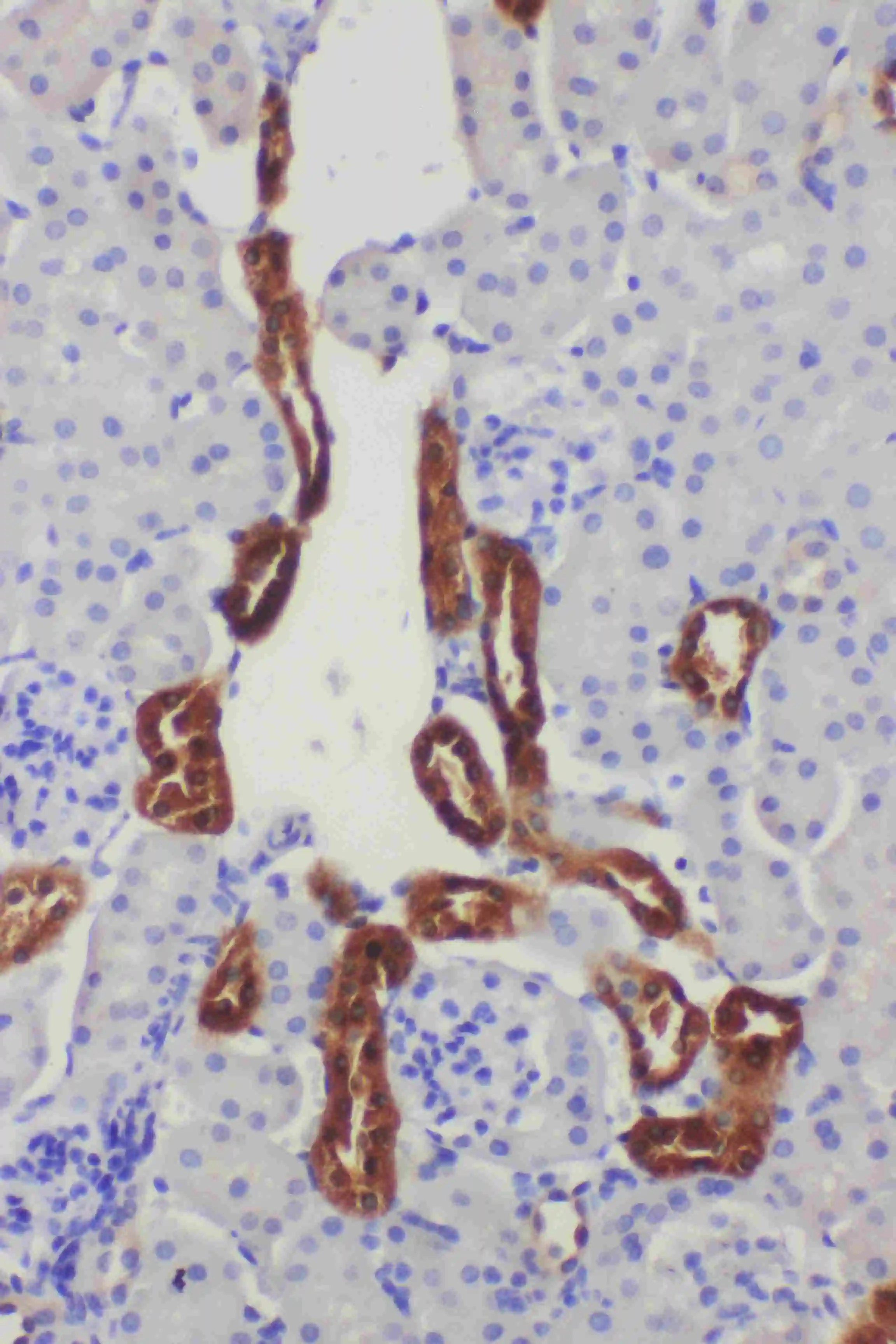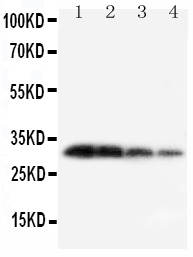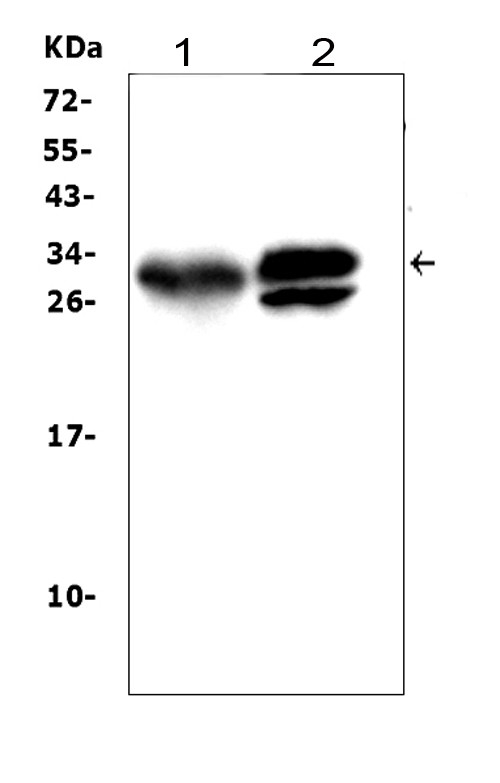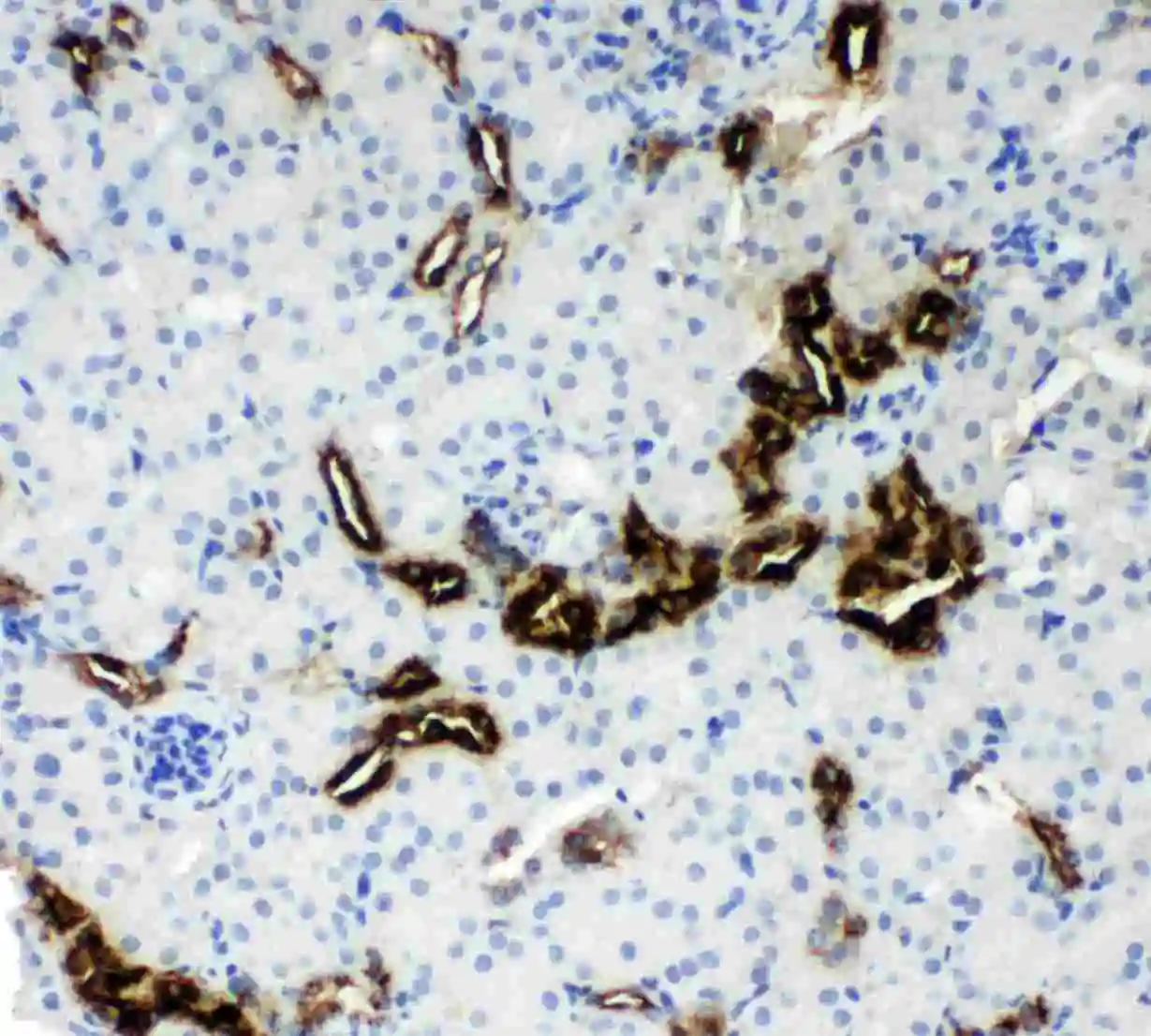
IHC-P analysis of mouse kidney tissue using GTX12058 Kallikrein 1 antibody.
Kallikrein 1 antibody
GTX12058
ApplicationsWestern Blot, ImmunoHistoChemistry, ImmunoHistoChemistry Paraffin
Product group Antibodies
ReactivityMouse, Rat
TargetKlk1
Overview
- SupplierGeneTex
- Product NameKallikrein 1 antibody
- Delivery Days Customer9
- Application Supplier NoteWB: 0.1-0.5microg/ml. IHC-P: 0.5-1microg/ml. *Optimal dilutions/concentrations should be determined by the researcher.Not tested in other applications.
- ApplicationsWestern Blot, ImmunoHistoChemistry, ImmunoHistoChemistry Paraffin
- CertificationResearch Use Only
- ClonalityPolyclonal
- Concentration500 ug/ml
- ConjugateUnconjugated
- Gene ID16612
- Target nameKlk1
- Target descriptionkallikrein 1
- Target synonyms0610007D04Rik, KAL-B, Kal, Klk1b6, Klk6, mGk-6, kallikrein-1, glandular kallikrein K1, kallikrein renal/pancreas/salivary, tissue kallikrein-6, true tissue kallikrein
- HostRabbit
- IsotypeIgG
- Protein IDP15947
- Protein NameKallikrein-1
- Scientific DescriptionThis gene encodes a member of the kallikrein subfamily of serine proteases that are involved in diverse physiological functions such as skin desquamation, tooth enamel formation, seminal liquefaction, synaptic neural plasticity and brain function. The encoded preproprotein undergoes proteolytic cleavage of the activation peptide to generate the functional enzyme. Mice lacking the encoded protein are unable to generate significant levels of kinins in most tissues, develop cardiovascular abnormalities and exhibit hypercalciuria of renal origin. This gene is located in a cluster of several related kallikrein genes on chromosome 7. Alternative splicing results in multiple transcript variants encoding different isoforms, some of which may undergo similar processing. [provided by RefSeq, Feb 2016]
- ReactivityMouse, Rat
- Storage Instruction-20°C or -80°C,2°C to 8°C
- UNSPSC41116161





